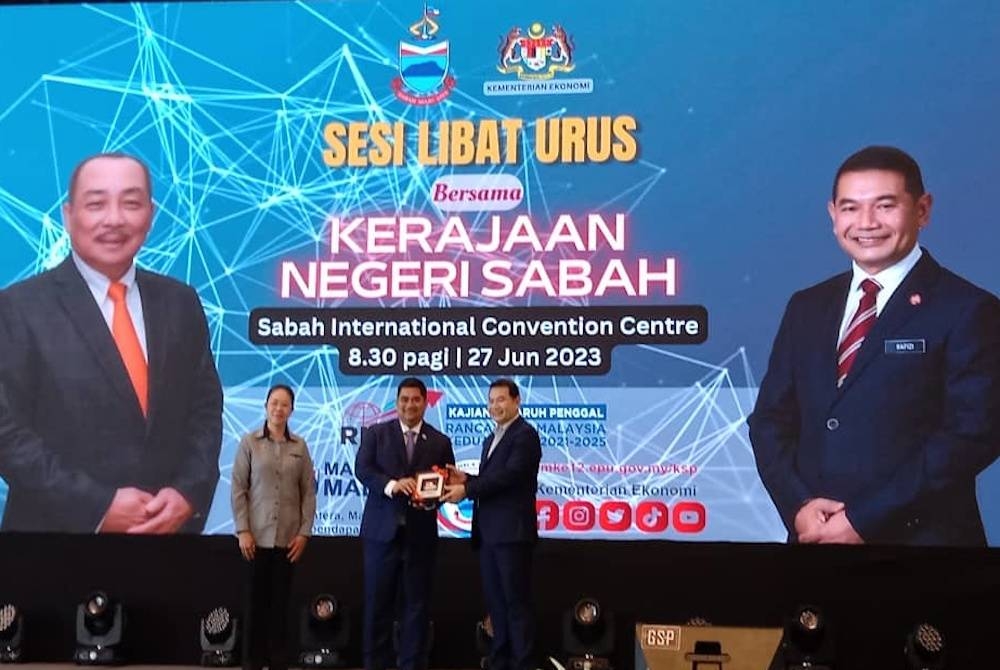Targeted subsidies reduce government debt - Rafizi

KOTA KINABALU – Targeted subsidies are being implemented to reduce the government's debt burden and redirect savings toward development programmes, according to Economy Minister Rafizi Ramli.
With Malaysia's national debt currently standing at RM1.3 trillion and a debt-to-GDP ratio of 70 per cent, the economic situation directly impacts the people and state governments.
"The limited borrowing space and high annual interest payments, currently amounting to almost RM40 billion, divert resources that should be allocated to development," said Rafizi during an interaction session with the Sabah government at the Sabah International Convention Centre (SICC) on Tuesday.
To address this, the government plans to enhance governance and procurement practices over the next one to two years, allowing funds to be redirected to national development programs.
Rafizi stressed the need for a more precise approach in determining household spending ability to ensure targeted subsidy distribution, as the country's annual subsidy expenditure amounts to RM86 billion.
"We have already implemented this approach with electricity subsidies, resulting in anticipated savings of RM6 to RM8 billion annually. The next focus will be on diesel and RON95 subsidies, among other targeted programmes," he added.
By generating savings, the government aims to reduce the need for further borrowing for development projects and allocate the funds to other initiatives.
Meanwhile, Sabah Chief Minister Datuk Seri Hajiji Noor expressed optimism about the state's economic recovery, projecting a positive growth rate of four to five per cent for 2022 and 2023.
Hajiji acknowledged the government's commitment to maintaining momentum in economic recovery and accelerating the implementation of high-impact development programs while attracting more investments to Sabah.
"Despite the uncertain global and national economic situation, Sabah's economy is on the right track towards recovery.
"In 2021, we recorded positive growth of 1.1 per cent compared to a contraction of 9.2 per cent the previous year," he said in a speech read by Deputy Chief Minister Datuk Ir Shahelmey Yahya, who officiated the engagement session.
Download Sinar Daily application.Click Here!














